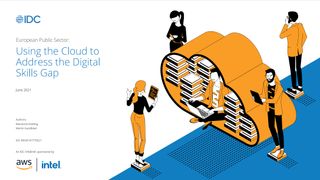Australia pledges $5 million to create tech skills passport
The Coalition government plans to introduce the policy if re-elected later this month

The Australian government has promised to invest $5 million (£2.8 million) in a tech skills passport if reelected in the upcoming election.
The Coalition government hopes this will help Australians get a job in the technology sector, it said yesterday. To ensure that Australians can match their skills with industry needs, it will partner with the Australian Technology Network of Universities (ATN) to accelerate the implementation of skills passports.
The new passport will expand access to recognition of prior learning and get people qualified with the skills the industry needs into a job faster.
“Where there are skills gaps to fill, we want Australians to have the first crack at getting that opportunity and our skills passport approach will enable rapid upskilling and reskilling,” said Stuart Robert, the minister for Employment, Workforce, Skills, Small and Family Business. “These investments will mean more skilled workers, lower unemployment, and a stronger future not just for apprentices and trainees, but for Australia.”
The tech skills passport will help workers match their existing skills and experience with the needs of the tech sector and navigate a pathway through the university and vocational education sector, added the ATN.
The ATN said that Australia will need around 300,000 new tech workers by 2025. It will also need 12,000 university and Vocational Education and Training (VET) graduates and 60,000 upskilled and reskilled workers.
ATN universities will partner with vocational education providers and the tech industry to co-design, deliver, and recognise skills, as well as provide career support to help people make the most of their skills.
Get the ITPro. daily newsletter
Receive our latest news, industry updates, featured resources and more. Sign up today to receive our FREE report on AI cyber crime & security - newly updated for 2024.
“This initiative is an answer to ATN’s calls for the Government to partner with universities and industry to deliver solutions to fill urgent and persistent skills requirements, flexibly meet emerging needs, and create a vision to address Australia’s challenges and opportunities,” said Iain Martin, ATN chair. “A three-way partnership between universities, industry and the government is crucial to delivering better outcomes for industry, workers and the economy.”
The government’s commitment to a digital skills passport is a critical step towards a more modern skills system that ensures workers can take advantage of big economic changes, said Jennifer Westacott, chief executive of the Business Council of Australia.
“The Business Council has long called for a skills passport system because that makes it easier for Australians to build their own qualifications and get the jobs they want,” said Westacott. “For the digital sector, this will help employers match with the right workers with the right skills. We hope this is the starting point for a skills passport system for all Australians.”

Using the cloud to address the digital skills gap
Boost retention in an increasingly digitised environment
A Labor party spokesperson said the government is “playing catch-up footy” on skills and tech jobs through this initiative, as reported by InnovationAus.
“For too long the government has neglected the skills sector and key opportunities in upskilling Australians in critical skills areas like cyber and tech,” said the spokesperson.
“An Albanese Labor government will set a goal of 1.2 million tech-related jobs by 2030, with our fee-free TAFE [vocational education and training provider] and 20,000 university places at the heart of this plan. We know how important these critical skills are, and the opportunities of well-paid, secure jobs which come from them.”
The opposition party has set a goal of having 1.2 million tech jobs in the tech industry within the next eight years if elected in May, as reported by 7News. Currently, the industry is responsible for over 850,000 jobs. Experienced workers and businesses have left the country as the government has failed to back tech jobs in existing and emerging industries, said Anthony Albanese, leader of the Labor party.
Zach Marzouk is a former ITPro, CloudPro, and ChannelPro staff writer, covering topics like security, privacy, worker rights, and startups, primarily in the Asia Pacific and the US regions. Zach joined ITPro in 2017 where he was introduced to the world of B2B technology as a junior staff writer, before he returned to Argentina in 2018, working in communications and as a copywriter. In 2021, he made his way back to ITPro as a staff writer during the pandemic, before joining the world of freelance in 2022.





